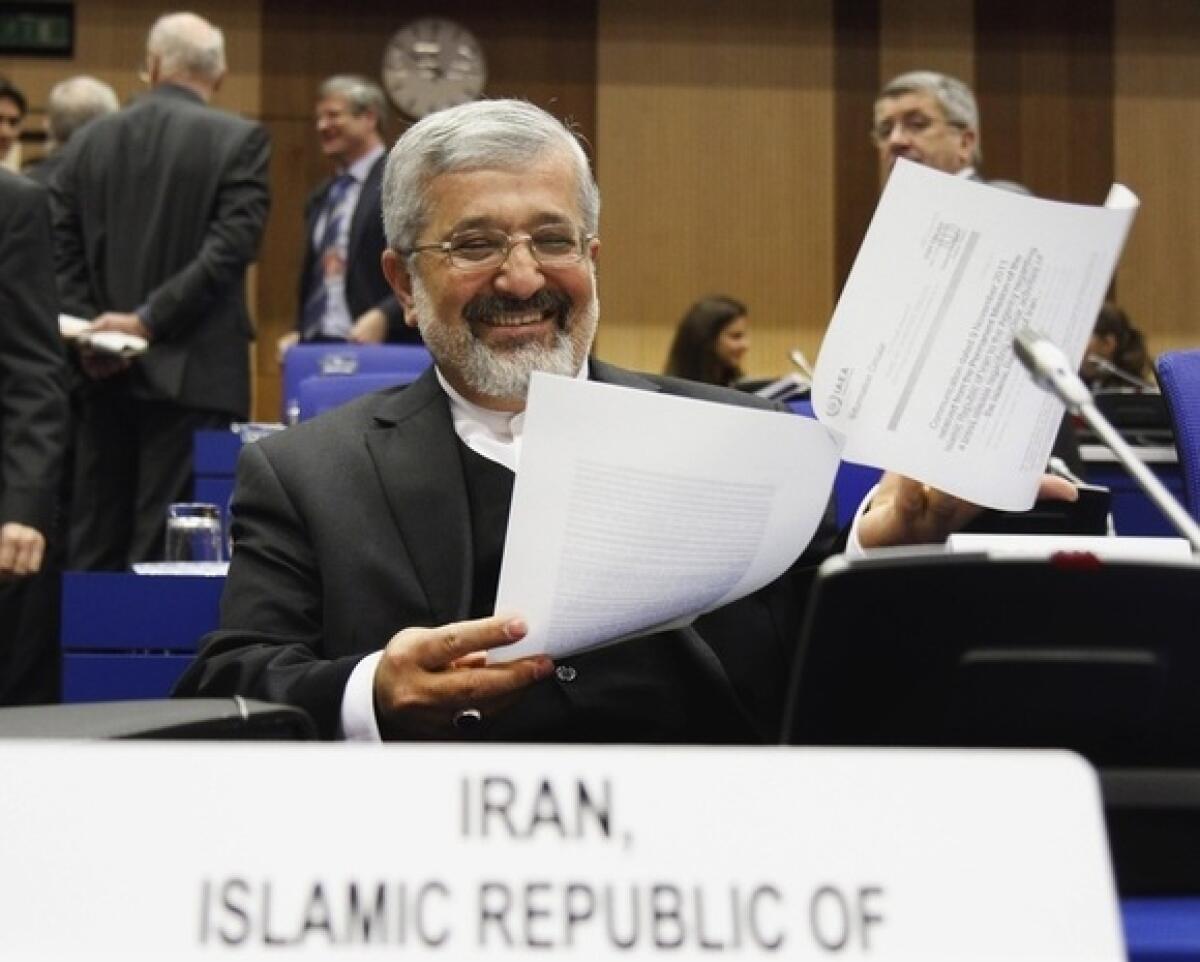U.S. to announce new sanctions against Iran

- Share via
The Obama administration will designate Iran and its central bank as a “primary money-laundering concern” Monday and impose new sanctions aimed at deterring the regime from developing nuclear weapons.
The Treasury Department is not planning to sanction Bank Markazi, Iran’s central bank, despite calls from some Republicans and Democrats in Congress to do so.
But U.S. officials hope the new set of sanctions will inspire other governments to break off transactions with both the central bank and with businesses in Iran, especially those in its critical energy sector.
The U.S. sanctions were coordinated with British officials, who announced Monday that they would cut off all financial ties with Iranian banks. Canadian officials also were to announce new sanctions against Iran on Monday.
The Obama administration boasts that it has imposed harsher sanctions on Iran than any previous administration. Yet critics point out that the sanctions, while clearly harmful to Iran’s economy, have not halted the country’s suspected nuclear program nor its sponsorship of alleged terrorist activities.
The decision by U.S. officials is inspired in part by disclosures of an alleged assassination plot against the Saudi ambassador in the United States and by a recent report from the United Nations nuclear watchdog agency about advances in the Iranian nuclear program.
Analysts said that identifying Iran as a source of money laundering is the most consequential step announced by the administration. The designation would probably cause financial institutions that want to remain in good stead with United States authorities and the U.S. economy to sharply curtail their dealing with Iranian institutions.
Yet some speculated it would not deter institutions from other key Iranian trading partners, such as Russia, China, Turkey and Kuwait, which care less about their standing with the U.S.
“This is unlikely to drive them away, because it still doesn’t contain specific penalties,” said Mark Dubowitz, executive director of the Foundation for the Defense of Democracies.
He added that Congress, which supports categorical sanctions on Iran’s central bank, and far tougher enforcement, “is unlikely to be satisfied with this.”
christi.parsons@latimes.com
paul.richter@latimes.com
More to Read
Sign up for Essential California
The most important California stories and recommendations in your inbox every morning.
You may occasionally receive promotional content from the Los Angeles Times.














